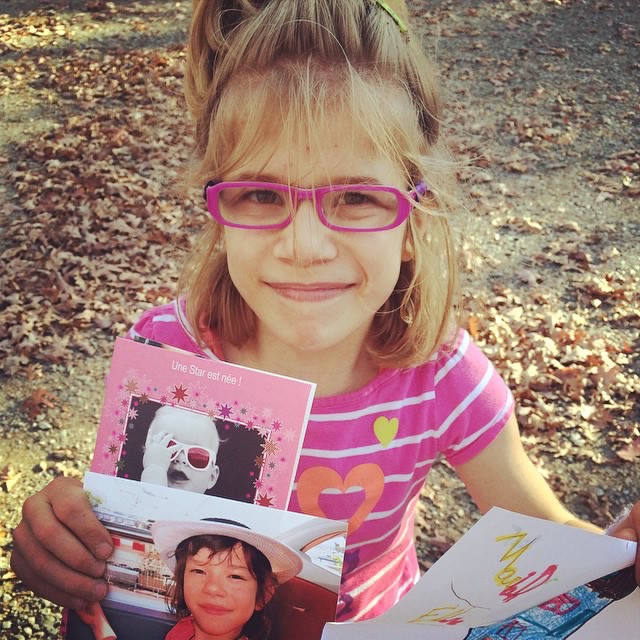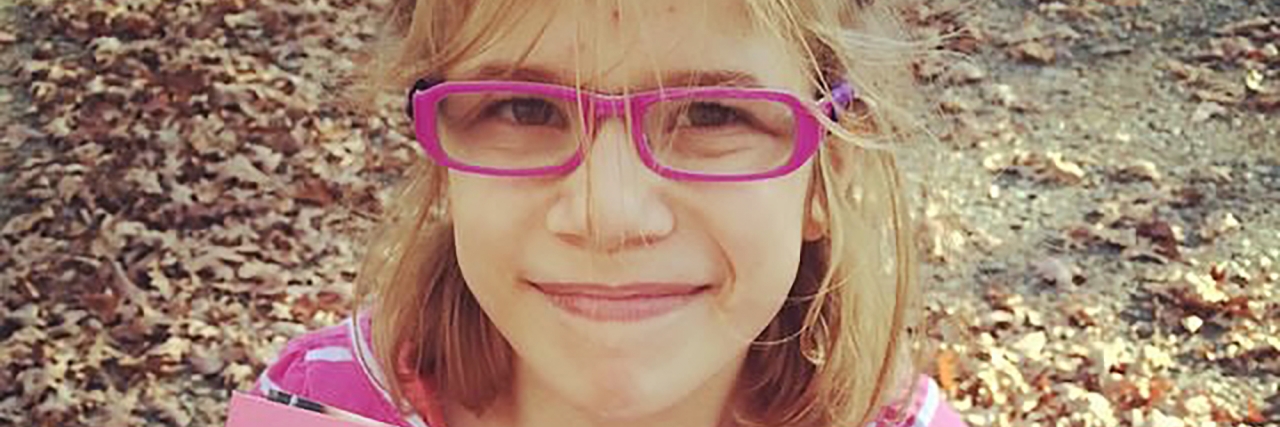When I first met my daughter, she was 4 years old and in a Ukrainian orphanage. All I really knew about her was that she had cerebral palsy caused by a stroke and was unable to walk. When a nanny brought her into the director’s office to meet us, she said in perfect Russian, “Hello. Are you here to take me home?”
We were.
She struggled more than most children in pre-K and kindergarten. At first we thought it was just due to being neglected and delayed, but in first grade I pushed for her to be evaluated for dyslexia. Her writing was nearly always reversed in a mirror image, and often the words were spelled backwards. Sometimes she would write an entire sentence backwards from right to left, flipping every letter in every word backwards. It was mind-boggling to me how her brain could produce something like that. She often got math problems wrong because although she knew the answer verbally, her 6 was written as a 2 and 17 became 71. The school said they didn’t diagnose kids with dyslexia until third grade. My daughter was only in first, but I knew she had it.
A neuropsychologist diagnosed her with severe dyslexia and dysgraphia as well as a visual impairment and math disorder. She sees things as “mirror reversals and distortions” because her eyes don’t work together or with her brain, due to her brain injury from having a stroke.
School was a constant source of frustration for her because she had so much to say, yet struggled to get anything legible out onto paper. Trying to complete worksheets full of printed words just left her confused. I have watched her write a 7 down the correct way, then say “Oh oops, it’s backwards,” and erase it so she could write it…backwards. When I pointed out that she had it right, she said, “Oh, why do I write things backwards?”
Well aware that she was performing below her peers, she was constantly talking in an effort to distract from her seat work. She hated writing so much that one day she just drew scribbles on her writing paper in a refusal to work on letters. Her teachers were angry at her for being so defiant, but oh, that spirit! She just didn’t see the point in writing when she was so easily able to talk.
I knew that before we adopted her, she had a sister at the orphanage with her. Through the help of an online friend, we were able to find the French family that adopted her sister a few years before. We never knew why the girls were separated, but finding her sister has been a great source of happiness for M. Imagine our surprise when we found out that her sister also has cerebral palsy and dyslexia!
The first day we were able to have the girls Skype face to face with each other was wonderful. Her mother and I were a hot mess of Google Translate, but it didn’t matter to the girls. They wanted to show each other baby dolls, Peppa Pig, and compare their AFOs (braces worn on their legs). What a gift for them both to look at a face so similar to their own. “I don’t like wearing glasses, but look, my sister has them too!”
 Since finding her sister, we have sent pictures and letters through the mail. My daughter was thrilled the day a letter arrived from her sister addressed to Mademoiselle M****. “She wrote it in cursive to me! I want to learn to write in cursive too!” And just like that, writing had a purpose. I homeschool M now, so for the past year we have worked on her handwriting with Dyslexia Games workbooks, and I’ve taught her cursive.
Since finding her sister, we have sent pictures and letters through the mail. My daughter was thrilled the day a letter arrived from her sister addressed to Mademoiselle M****. “She wrote it in cursive to me! I want to learn to write in cursive too!” And just like that, writing had a purpose. I homeschool M now, so for the past year we have worked on her handwriting with Dyslexia Games workbooks, and I’ve taught her cursive.
“Writing practice” and “spelling” have been stories she’s written for her sister, and she voluntarily re-writes them with corrections I make, “So my sister can read it easily. I want it to look really nice for her!” The improvements M has made with her writing, and the joy with which she now does it make my heart happy.
I hope to one day take M to France to meet her sister face to face. Neither girl remembers the other from their time in the orphanage, but both are eager to one day meet again. Until then, letters, cards, and pictures cross the Atlantic from two little girls who have been thrilled to connect as sisters with not just the same disabilities, but similar interests as well.

